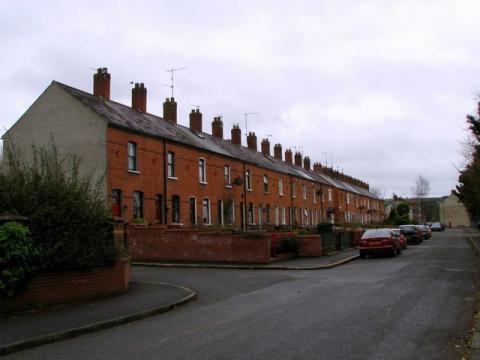Can a successful rural project help vulnerable people in the city?

A Public Health Agency (PHA) pilot project in south Belfast is testing whether a very successful rural programme can be used in the urban environment, to help vulnerable older people.
The ‘Urban Maximising Access’ pilot will work with local networks and use their knowledge to identify and connect with the older people, putting them in touch with the grants and benefits they are entitled to and a range of statutory and community based services they could avail of. The approach is aimed at helping to reduce poverty and social isolation and their detrimental effect on health and wellbeing.
Following the success of the ‘Maximising Access to and uptake of grants, benefits and services in Rural Areas’ (MARA) project – a joint PHA and Department of Rural Development funded initiative across Northern Ireland – this pilot will work with 50 older people living in, or at risk of, poverty and social isolation.
Describing the importance of the pilot for urban areas, Séamus Mullen, Head of Health and Social Wellbeing Improvement (Belfast), PHA, said: “The Public Health Agency has a major role in addressing health inequalities and improving health and wellbeing, and we work in partnership with a range of organisations to do this.
“The evaluation of MARA (phase I) has given us an excellent model which we are now testing with older people in the urban setting of south Belfast. We know that poverty is not just a rural problem, so we are testing this model to see if it can be successfully applied in Northern Ireland’s urban settings. This pilot will also help us to see if social isolation is as big an issue in inner city as it is in rural environments.”
The PHA has commissioned Bryson Energy to conduct the pilot, testing the MARA project approach – Phase I of which showed that for every £1 invested a return of £8.62 was achieved. The Urban Maximising Access Pilot will see if similarly impressive results are obtained in an urban setting and can be used to improve health and wellbeing in the future.
Orla Ward, Bryson Energy, said: “In these difficult times we believe a home visit offering this level of practical support can really help older people maximise their income, improve the standards of their home and participate in local activities. Our experienced team will tailor every visit to meet the needs of the individual and ensure we can help them access the range of support that is available. We commend the Public Health Agency for their commitment to the project.”
Bryson Energy trained staff (known as ‘Advice Officers’) will visit the homes of identified older people, from July-August 2012, and having built a rapport will use a questionnaire to establish the older person’s needs and their eligibility for benefits, grants and services.
Contact the PHA Communications on 028 9055 3663.
Photograph: © Copyright Ross and licensed for reuse under this Creative Commons Licence. Copyright Ross McDonald/Geograph
Urban Maximising Access Pilot
- Trained ‘Advice Officers’ will contact 50 identified households and make arrangements to visit them in their own homes during June-August 2012. During the home visit the Advice Officers will build a rapport with the older person and establish their needs on a range of issues using a standardised questionnaire:
- Benefit entitlements
- Home energy improvements
- Home safety
- Social isolation
- Social care
- Transport
- The Advice Officers will also do a Benefits Entitlement Check during this first visit, if appropriate, and will refer the older person to other suitable services based on their needs. If necessary the Advice Officer will support them through the referral process and arrange any follow-up, to monitor the progress through referral, offering any relevant further assistance.
- Bryson Energy has contacted abroad range of statutory, community and voluntary services in South Belfast to let them know they are working in the area, and for appropriate referrals. They will also engage with the local community in order to identify suitable households (i.e. older people living in, or at risk of, poverty and social isolation).
- The PHA will conduct an evaluation on the pilot project during Sept/Oct 2012 to identify outcomes and compare results with the MARA project.
Project Stakeholders
- The Project steering group is made up of:
- Public Health Agency
- Bryson Energy & Bryson Care
- Belfast Healthy Ageing Strategic Partnership
- South Belfast Area Partnership
- Engage with Age
- Belfast City Council
- Belfast Health & Social Care Trust
- National Energy Action
- H & A Mechanical Services (Warm Homes Scheme)
MARA Phase I ran from Oct 2009 – March 2011 during which 4,135 vulnerable households were visited.
- For MARA Phase II, £2,657,880 has been committed from DARD’s Tackling Rural Poverty and Social Isolation Budget, and £300,000 from the PHA.
